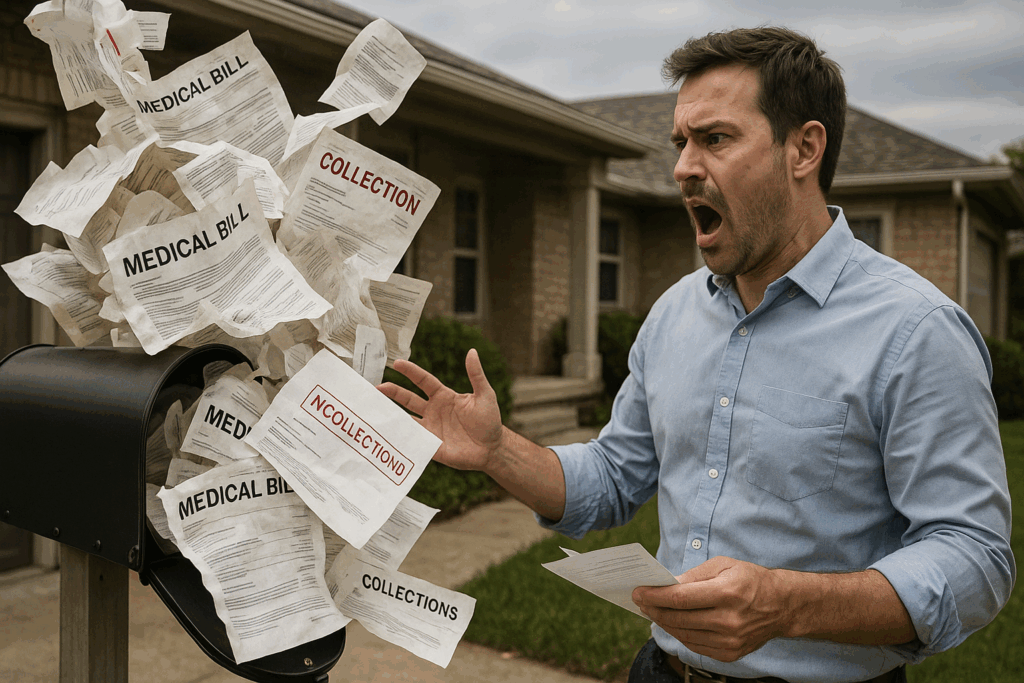How Medical Collections Affect Your Credit

Medical bills are the kind of debt no one plans for. You don’t choose to break a bone, need surgery, or get stuck with a surprise ambulance ride. Yet all it takes is one billing error, missed notice, or uncovered procedure to send your account to collections, and your credit score down with it.
Here’s how medical collections show up on your credit report, what they do to your score, and why they’re often more complicated (and frustrating) than other types of debt.
What Counts as a Medical Collection?
A medical collection is exactly what it sounds like: an unpaid medical bill that’s been turned over to a third-party collection agency.
It could come from:
- A hospital
- A private clinic or specialist
- A lab or imaging center
- An ambulance or emergency service
- Your primary care physician
Even if the original bill was small, or you never saw it, it can still be sent to collections if the provider doesn’t receive payment within their timeline.
There’s Usually a Grace Period (But It’s Not Forever)
In the past, medical debt could hit your credit report quickly. But in recent years, credit reporting policies have shifted.
As of recent updates:
- Medical collections don’t show up on your credit report for at least 12 months after the account becomes delinquent
- This gives you time to resolve insurance issues or set up payment
That said, if the bill remains unpaid beyond that grace period, it can be reported to the credit bureaus just like any other collection account.
How Medical Collections Impact Your Credit Score
Even though it’s a medical bill, collections are still considered a serious negative mark on your credit report.
Once reported, medical collections can:
- Drop your score by 50 to 100 points or more, depending on your overall profile
- Make it harder to get approved for credit cards, mortgages, auto loans, and even apartments
- Signal to lenders that you may be a higher-risk borrower, regardless of how the debt happened
And unfortunately, most scoring models don’t care that it was a medical bill. To the system, a collection is a collection.
Not All Medical Collections Are Treated Equally
Newer credit scoring models (like FICO 9 and VantageScore 4.0) have started to weigh medical collections less heavily than non-medical ones. Some may even ignore paid medical collections entirely.
But here’s the catch:
Most lenders still use older scoring models (like FICO 8) that don’t make that distinction. So even if the newer models are more forgiving, the reality is that many banks, landlords, and lenders still see the full impact of that medical collection.
Insurance Mix-Ups Can Still Hurt You
One of the most frustrating parts about medical debt is that you might not even know you owe it.
- A bill might have gone to the wrong address
- Your insurance might have denied or delayed coverage
- A provider might have sent the bill straight to collections without notifying you
And unfortunately, none of that changes how it affects your credit once it’s reported.
Why It Matters
Even one small medical collection on your report can:
- Make your interest rates higher
- Trigger a loan denial
- Reduce your borrowing power
- Stall your plans to buy a home, start a business, or refinance a car
It doesn’t matter whether the original charge was $50 or $5,000. Once it hits your report, it sends a strong negative signal.
Final Thought
Medical collections are one of the most frustrating parts of the credit system. They often come from emergencies, miscommunication, or insurance issues, and yet they carry the same weight as missing a car payment.
Understanding how they affect your credit is the first step toward protecting yourself.
At CreditNerds.com, we help you make sense of your credit report, spot what’s hurting you, and take action that fits your situation. And we only get paid when we get results. Schedule your free consultation today.

